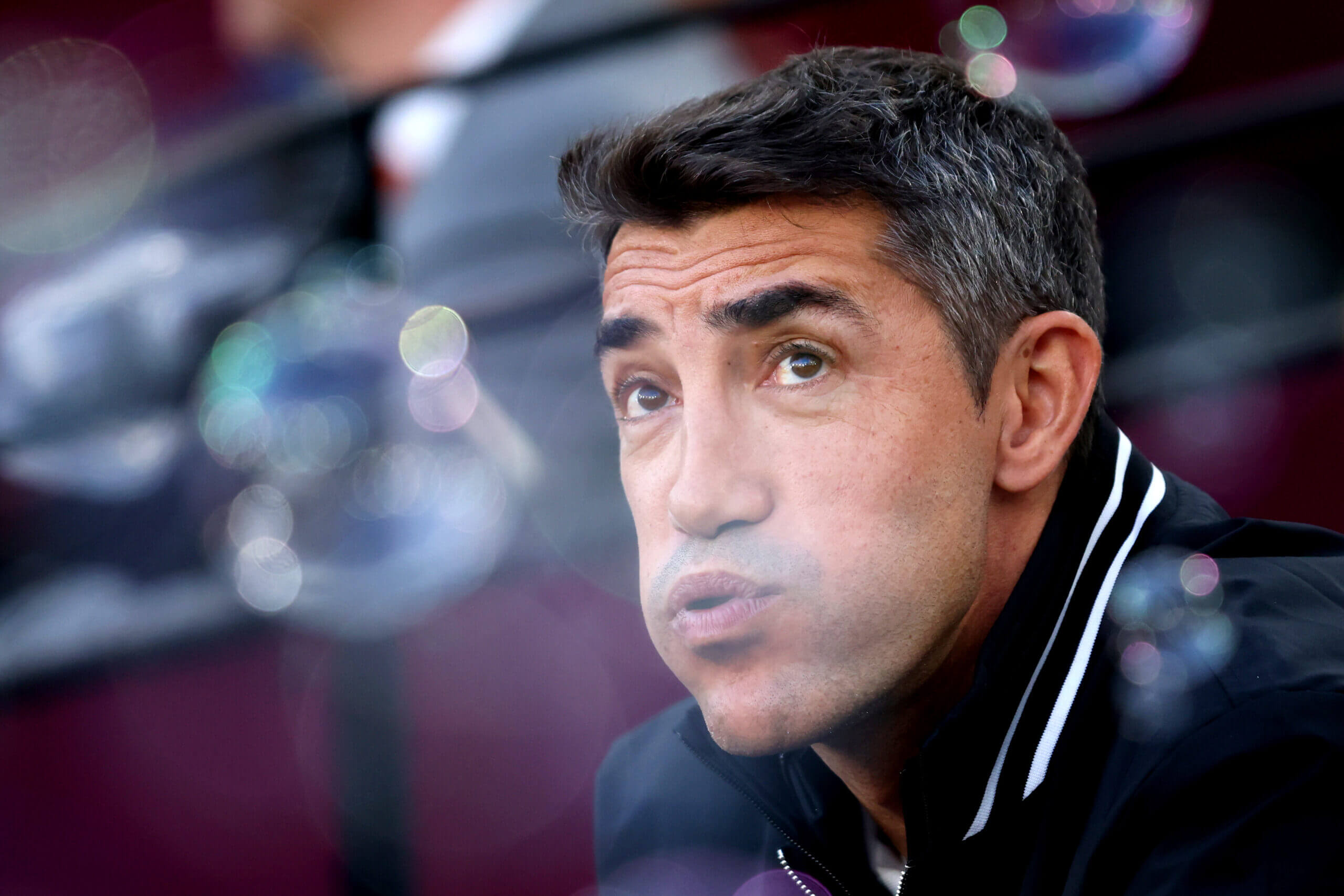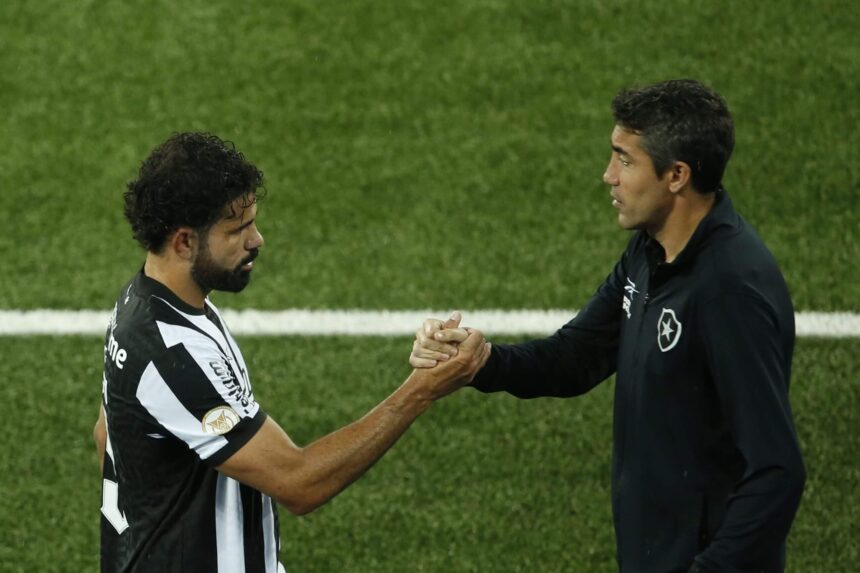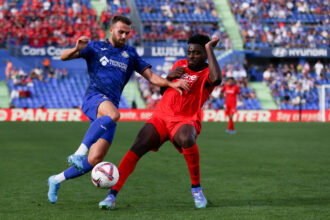It was Manchester City chief executive Ferran Soriano who first noticed the similarities between the business of football and what Walt Disney started a century ago.
“Disney uses its characters, such as Mickey Mouse, to produce audiovisual content, sell T-shirts and instigate theme parks,” he wrote in Goal: The Ball Doesn’t Go In By Chance in 2012. “Manchester United might not have had Mickey Mouse, but it did have David Beckham, who used to sell a whole lot of television programmes (football matches), T-shirts, and to turn Old Trafford into a lucrative theme park.”
Advertisement
This “Disneyfication” of football is the theory underpinning the multi-club ownership model that Soriano has implemented at City Football Group, the holding company that owns stakes in 13 clubs, most notably Manchester City.
But a £6million ($8m) legal case filed at London’s Commercial Court in March has revealed that John Textor, the man behind the Eagle Football group of clubs, has spotted another potential multi-club benefit: managerial recruitment.
Textor’s pitch to former Wolverhampton Wanderers manager Bruno Lage in July 2023 appears to have been words to the effect of ‘join our Brazilian subsidiary Botafogo for six months and, if all goes well, we will move you to one of our sexier posts at Crystal Palace or Lyon’.
This is not an offer any owner of a single club could put forward, but owners of multi-club groups can, in theory, make such promises. However, the dispute between Lage and Textor, a first of its kind, will hinge on whether such promises are enforceable.
Lage didn’t get his move to the Premier League or Ligue 1 — and now he wants around £6m for the ‘job offer’ that never came.
In July 2023, Eagle’s Rio-based club, Botafogo, were top of the Serie A table in Brazil but without a head coach, as Portuguese manager Luis Castro had just joined compatriot Cristiano Ronaldo at Saudi side Al Nassr.
Having been sacked by Wolves in October 2022, Lage was available and looked like a decent fit at Botafogo. He is also Portuguese, so speaks the language, and won a title with Benfica in 2019. He is also represented by Ronaldo’s agent, Jorge Mendes.
For Lage, this was a way to get back on the horse, and not just any horse, as Botafogo had made their best ever start to the season and were seven points clear at the top of Brazil’s Serie A. But, on the flip side, Botafogo were a very surprising league-leader and there was still a lot of football to be played.
Advertisement
Furthermore, Brazil is a long way from the bright lights of European football’s biggest stages and that was where Lage really wanted to be. So, he needed some assurances from Eagle that this move away from Europe was not permanent.
Eagle gave him a six-month contract to see out the rest of the Brazilian season and a side deal, or “retainment agreement”, that detailed a potential promotion to Crystal Palace or Lyon.
Bruno Lage with striker Diego Costa in August 2023 (Satiro Sodré/Eurasia Sport Images/Getty Images)
And this is where the legal row starts.
The particulars of the claim were filed in London by Lage’s lawyer, Liz Ellen, on March 19.
Quoting from the contract’s recital, which is a statement of facts that precedes all the legalese, it says Eagle Football Holdings Ltd, a UK-registered company, is the ultimate owner of Botafogo, Crystal Palace and OL (Olympique Lyonnais or, more commonly in English, Lyon) — although in Palace’s case, this is only partially true, as Eagle owns 43 per cent of the Premier League club.
It then says that Lage is to be employed by Botafogo from July 15 to December 31 but, at the termination of that contract, “Eagle Holdings is desirous of engaging (Lage) as head coach of either Crystal Palace or OL” and Lage “is desirous of being engaged as head coach of Crystal Palace or OL”.
We then get to the key passage.
“The parties have agreed that during the period January 1, 2024, to April 15, 2024 (the ‘restricted period’), Eagle Holdings must use its powers as beneficial owner of Crystal Palace and OL to offer the head coach a new position as head coach of the men’s professional football first team at either Crystal Palace or OL,” it says.
This offer, the contract says, includes letting Lage appoint his own assistants, with a combined salary pot, which Lage can divide as he sees fit, of $3.6million “per annum, net of tax and social security contributions”. Or ‘netto’, as football agents have often put it to English clubs.
Advertisement
However, there was a reciprocal agreement by Lage that he would pay Eagle Football the same sum “in compensation” if he took a job in the restricted period. So, Lage was committing to making “himself available” to Eagle during this period, and the parties “intend this retainment agreement to be legally binding”.
So what happened?
After Roy Hodgson fell ill in February 2024, Crystal Palace replaced him with Oliver Glasner, the Austrian coach who was in demand after successful stints at LASK, Wolfsburg and Eintracht Frankfurt.
Getting Glasner looked like a coup at the time for Palace and that is how it has panned out. Lage’s name was never linked with the role in any media report that The Athletic can remember.
Lyon, meanwhile, had Pierre Sage in the dugout. He had initially taken the role on an interim basis in November 2023, following the sacking of Fabio Grosso, but, in January, Textor officially gave him the job until the end of the season. Sage was then given a new two-year contract that summer as a reward for getting Lyon into the Europa League.

John Textor waves to fans before the Copa Libertadores 2024 final last November (Buda Mendes/Getty Images)
Lage was linked with this job in the media, but Sage was the man in possession and nobody thought it was odd that he ended up keeping it.
Lage, however, was very much available by this point, as he and Botafogo had parted company on October 3, 2024, less than three months after taking the job.
In a post-match press conference on September 3 after Botafogo had lost 2-1 at home to local rivals Flamengo, Lage said: “Regarding this thing of only looking at my career at Botafogo, it puts a lot of pressure on the players, and I don’t accept that.
“There is only one way to free them from this pressure. And that is why I am here before you. I have not spoken to anyone, I have thought a lot and I am putting my position at the disposal of the director, at the disposal of the president.
Advertisement
“I have a contract with Botafogo until December, it’s a lot of money in salaries, I have prizes that are practically guaranteed for going to the Libertadores. There’s the champion’s prize, but I have no problem giving that up because I’m not greedy for money.
“What I cannot allow is for the pressure that is being exerted on me to be exerted on my players. That is all I have to say. My place is at the disposal of whoever is in charge, without anything else to say. Good night, thank you.”
Eagle’s interpretation can be found in the statement it released when news of Lage’s legal action emerged last month.
It says Eagle is “aware” of his claim, which it says “relates to a dispute over the proper interpretation of a historical agreement” between the parties. It continues by saying that Eagle does not believe Lage has a case and it will “vigorously defend the claim”. It will also go after Lage for its costs.
We then get this withering assessment of Lage’s exit.
“Eagle Football notes that Bruno Lage’s claim relates to an alleged failure to offer him a role at one of its clubs, if he were terminated by one of Eagle Football’s clubs, Botafogo,” it says.
“Eagle Football finds it curious that Bruno Lage feels aggrieved at not having been made such offer, given that, as was widely reported, he effectively walked away from one of Eagle Football’s clubs, Botafogo, at a time when he was highly supported by ownership.
“As is well known to the Brazil press, Mr Lage announced that he should be terminated, while walking out of a live press conference after Botafogo’s game against its biggest rival, in a crucial match. His abdication of his leadership position was a clear breach of his agreement and Eagle Football remains surprised that he would characterise his departure as a unilateral termination.”
Advertisement
It adds Eagle is “happy” to see Lage back in management with Benfica, second in the Portuguese league, and “remains open to an honest and constructive discussion with him to resolve this dispute”.
Neither Lage, his agent, nor his lawyer has responded to requests for comment, but his demands are very clearly spelt out in the legal documents.
“If Eagle Holdings fails to secure that Crystal Palace or OL makes a job offer during the restricted period, then Eagle Holdings shall pay to (Lage) the sum of $3.6million net of tax and social security contributions,” the claim says, quoting from the retainment agreement.
It concludes by noting that this payment was due on April 29, 2024, and the sum now owed, after factoring in Portugal’s tax rates, is $7,659,574 plus interest, costs and whatever damages the court sees fit to award.

Bruno Lage is now at Benfica after spells at Wolves and Botafogo (Marc Atkins/Getty Images)
So, what are his chances?
“It’s an interesting and unusual case, but I think as we see more multi-club ownership models, things like this will become more prevalent,” Jamie Singer, a founding partner of sports specialist Onside Law, tells The Athletic. “But the way they have gone about it, with this ‘retainment agreement’ concept, is odd.
“A fundamental principle of English contract law is that an agreement to agree is unenforceable. On the face of it, this retainment agreement looks very like an agreement to agree.
“It’s also difficult to see what consideration Lage is providing, other than, I suppose, forgoing other employment opportunities after Botafogo.”
Gregory Ioannidis, an international sports lawyer and an associate professor at Sheffield Hallam University, is another who thinks Lage’s legal team have their work cut out and might want to exhaust football’s usual disciplinary procedures — via the English Football Association or FIFA — before going to court.
Advertisement
“Football parties are subject to regulatory restrictions in that they must follow arbitration and avoid recourse to national courts,” Ioannidis says. “This is a strict rule that national associations tend to enforce.
“So, this is going to be tricky because we are looking at allegations of a breach of contract for a promise made regarding an employment opportunity in the future.
“There may also be jurisdictional issues — say he is successful in his claim, he will need to execute the court’s order. But if the defendant is based abroad, he may find it difficult to recover monies. The claim may be dismissed before it even starts.
“That’s why I advise clients to go through the usual disciplinary process — FIFA has more power to enforce decisions at a global level with harsher punishments.”
(Top photo: Satiro Sodre/Eurasia Sport Images/Getty Images)








